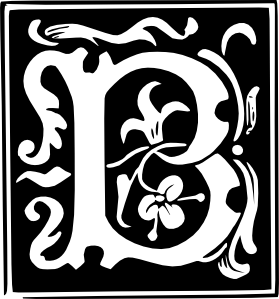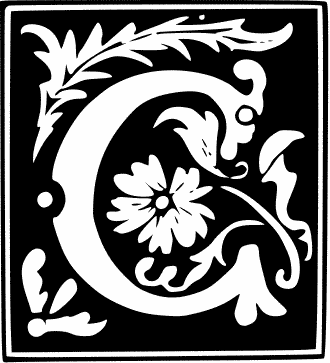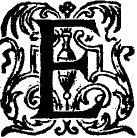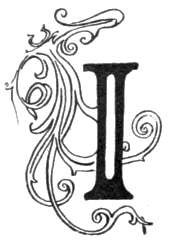ABCs of Archives & Special Collections
The University Archives & Special Collections is located on the 2nd floor of the University Library. With so many unique and interesting items, we decided to highlight our collection and define important terminology on this page. Check back every other week for updated entries!
 is for Archives & Accession
is for Archives & Accession
Archival repositories collect, preserve, and make accesible unique, original material (e.g. documents, files, letters, photographs) created or collected by a particular individual, family or organization.
The primary mission of a college or university archives is to identify, preserve and make available records that document the history and administration of the school. These include departmental records, university and student publications, theses and dissertations, photographs, memorabilia, architectural plans, and more. The bulk of the material held in the RWU Archives focuses on the school’s history since moving to Bristol in 1969.
The RWU Archives also houses two outside collections: the papers of the Roger Williams Family Association and bound back issues of the Bristol Phoenix newspaper.
When the University Archives receives new material, whether it be from a campus office or an outside gift, an accession record is created, summarizing the transfer of the material (both physical and intellectual control) to the Archives. During the 2012-2013 academic year, the University Archives accessioned two gifts from the community. In the fall we received the Anne “Pete” Baker Collection from her daughter Sarah. The collection includes research-related material regarding historic houses in Massachusetts and Rhode Island. In the spring we accepted the George T. Downing Correspondence from Daniel Tartaglia, featuring letters to Downing from William Lloyd Garrison and Ambrose E. Burnside.
 is for The Bristol Phoenix
is for The Bristol Phoenix
The Bristol Phoenix was first published in 1833 as The Bristol Gazette and is still published today. The newspaper provides a unique view into the history and political and social activities of the town of Bristol, Rhode Island.
Roger Williams University Library, in cooperation with Rogers Free Library, the Bristol Historical and Preservation Society, and Rhode Island Historical Society, received funding from the Rhode Island Council for the Humanities (RICH) to digitize issues from 1837-1853. The digitized newspapers are freely available online along with an index covering the years 1834-1873 created by the Bristol Historical and Preservation Society.
 is for Copying
is for Copying
Most records in the University Archives are public records and in the public domain. Still, permission to access collections held in the Archives does not constitute permission to duplicate or publish. Copyright for manuscript and other collections not created by the University, remains with their creators.Use the following form for citing archival materials from our collections:
Name of Item (of available), Name of Collection, Box and Folder Number, Roger Williams University Archives, Bristol, Rhode Island
Duplicating archival material, regardless of who created it, may be prohibited due to collection restrictions or its physical condition. In addition, requests for duplication must adhere with the Copyright Law of the United States of America and Related Laws Contained in Title 17 of the United States Code (specifically § 107. Limitations on exclusive rights: Fair use). Researchers are further responsible for obtaining any necessary permission to publish from the holder of copyright.
Duplication guidelines in the RWU Archives:
- All copies/scans must be made by the Archives staff, as their schedules permit.
- Large copy requests may need to be completed and picked up at a later time.
- Cameras are allowed, although the use of flash equipment may be restricted for the preservation of the materials.
 is for Deed of Gift & Donation
is for Deed of Gift & Donation
A deed of gift is a legal agreement between the archives and a donor documenting the terms of the donation (e.g. restrictions on access and use/rights).
The Archives seeks the following types of donations from University faculty staff, students and alumni:
- student newspapers prior to 1960
- diaries, journals, and photographs documenting campus life
- records of student organizations
Donations of material reflecting the history of Bristol and the East Bay area are also welcome. The Archives three largest outside donations to date are the Fulton Family Papers, Anne “Pete” Baker Records, and the George T. Downing Papers.
 is for Exhibits
is for Exhibits
Using materials from its collections, the Archives prepares two exhibits each year, one focusing on the history and accomplishments of the University and the other highlighting past commencement programs. Under the direction of our Special Collections Librarian, Christine Fagan, the Library creates an annual exhibit celebrating a book with a prominent anniversary. This year’s selection is John Steinbeck’s The Grapes of Wrath, celebrating its 75th anniversary in 2014.
 is for Finding Aids
is for Finding Aids
Finding aids describe records held in a repository. Like a library catalog helps you finds books, a finding aid can help you find archival materials. Finding aids provide useful information about a collection’s location, history, and summary, including dates, background on the organizational or individual creator, and an inventory.
The Rhode Island Archival and Manuscript Collections Online is a gateway providing access to archival and manuscript collections throughout Rhode Island. Researchers can locate collections relating to their research at Rhode Island repositories through one comprehensive website regardless of physical location. A selection of our finding aids are available through RIAMCO. To view our finding aids by collection, click here.
 is for Glass Plate Negative
is for Glass Plate Negative
A glass plate negative is a photographic image that uses glass as a base and in which the image polarity is reversed from the original. There are two types of glass plate negatives: collodion wet plate negatives and silver gelatin dry plate negatives. From 1851 through the 1870s, glass plate negatives generally used collodion as the binder to hold light-sensitive salts to the glass base. Frederick Scoff Archer, an English sculptor, invented this wet plate type. After that, silver gelatin was used as the binder. Richard Leach Maddox, a British physician and photographer, first produced these dry plate negatives in 1871. Because they were more sensitive than collodion plates, they were easier to work with and they were widely used until the 1920s. Both types of glass plate negatives are very fragile and require careful handling.
While the Archives does not have any glass plate negatives, we do have a small collection of daguerreotype, tintype, and ambrotype images.
 is for Historical Records
is for Historical Records
Historical Records, also called archival records, have enduring value. They are an important resource. They help convey a society’s culture from one generation to another and hold information about past policies and decisions. Historical records today can exist as original paper documents, tapes, microforms, photographs, or in electronic/digital form. There is no substitute for historical records. Whether public or private, old or new, these valuable records need to be kept permanently. This is one of the most important services a repositiory can provide.

is for Institutional Memory
Memories collected and shared by University faculty, students, staff, and alumni are just as important as traditional records. Personal items and collections from the University community can supplement the traditional paper and electronic records created by the University and help better document the school’s history. If you have a photograph, object, or a story from your time at RWC/RWU, please consider sharing it with the Archives.


